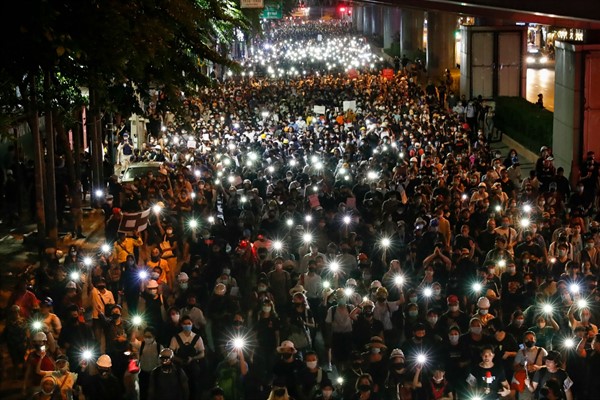For nearly five months, Thailand has been in the throes of a historic pro-democracy uprising. Demonstrators have braved water cannons and arbitrary arrests to challenge the current government of Prime Minister Prayuth Chan-ocha, the leader of a 2014 coup who then headed the military junta that ruled Thailand until last year. The protest movement has also broken a longstanding taboo by demanding reforms of Thailand’s monarchy, which is protected by one of the world’s harshest lèse-majesté laws.
Thailand’s king addressed the protests for the first time in rare public comments over the weekend, suggesting he may be open to compromise with the demonstrators. Meanwhile, as with all political unrest in Thailand, the ever-present possibility that the military will step in hangs over the protest movement. Today on Trend Lines, WPR’s Elliot Waldman discusses the latest developments from the Thai protests with Tyrell Haberkorn, a professor of Southeast Asian Studies at the University of Wisconsin-Madison and a 2020 Guggenheim fellow. Click here to read a transcript of an excerpt from the interview.
Listen:
Download: MP3
Relevant Articles on WPR:
Why Thailand’s Protesters Are Up in Arms Against the Monarchy
Why Thailand’s Leaderless Protests May Have Already Succeeded
Why the Thai King’s Power Grab Could Backfire
Trend Lines is edited by Peter Dörrie, a freelance journalist and analyst focusing on security and resource politics in Africa. You can follow him on Twitter at @peterdoerrie.
To send feedback or questions, email us at podcast@worldpoliticsreview.com.




